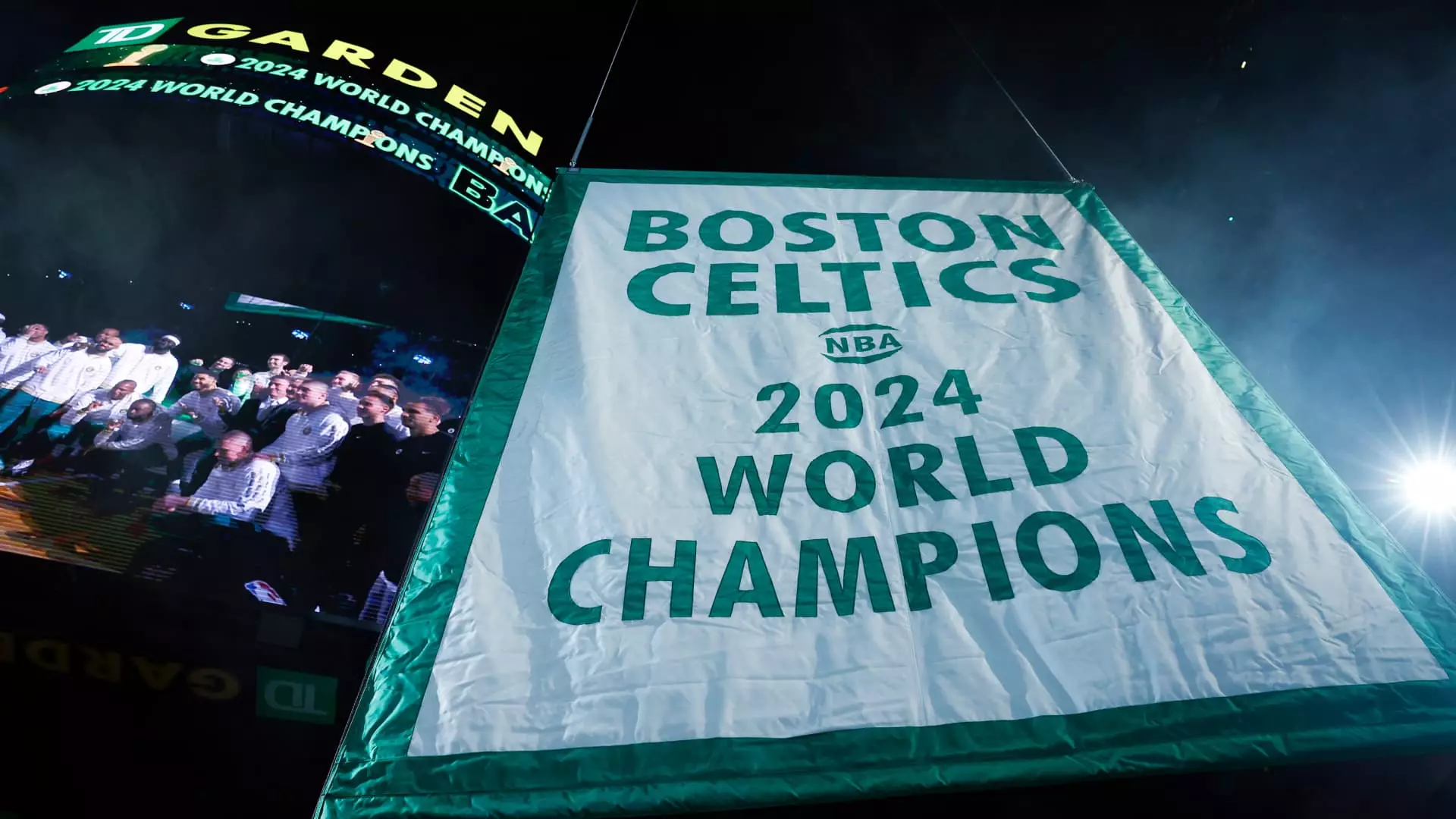On a historic Thursday, the Boston Celtics—an emblem of storied success in American sports—were sold to a consortium led by private equity figure Bill Chisholm for an astonishing $6.1 billion. This transaction represents a seismic shift not just for the franchise, but for sports team valuations as a whole. While many may celebrate the achievement of reaching such a lofty valuation, a deeper look reveals a troubling trend: the monopolization of professional sports by wealthy conglomerates rather than passionate individuals.
The new ownership group is fortified by heavyweights like Sixth Street, bringing over $1 billion into the mix. However, when you break down who is truly running the show, it becomes apparent that it’s not just about sports anymore; it’s about capitalizing on the fervor of sports fandom. Chisholm’s fond memories of being a Celtics fan, while sentimental, beg the question: does that nostalgia carry any real weight when weighed against the cold calculus of investment portfolios?
Fan Experience vs. Financial Assets
During the press conference announcing the deal, Chisholm expressed understanding of the Celtics’ integral role in Boston’s cultural fabric. But therein lies the contradiction: can anyone on Wall Street genuinely understand what makes a community treasure like the Celtics special? As the franchise becomes another trophy asset in a billionaire’s portfolio, the authentic relationship between fans and the team is endangered.
The dissolution of this relationship has already begun with the skyrocketing prices of tickets, merchandise, and luxury suites, making the games less accessible to the very fans that breathe life into the organization. While the Celtics have won 18 championships, what does that legacy mean when the people who have historically filled the stands are being priced out? The very ethos of sports—a community effort vested in collective joy—gets eroded when ownership is reflected in hedge fund interests.
The Dangers of Corporate Dominance in Sports
As the deal gains traction, it raises critical questions about the future landscape of sports ownership. The entrance of private equity firms into the fray signals a potential shift towards viewing sports teams as mere vehicles for financial investment rather than as community-centred institutions. The NFL has similarly welcomed this trend, allowing equity firms like Sixth Street to gain a foothold in franchise ownership.
The ramifications of this shift are multifaceted. Firstly, we must consider how much control these entities will exert over team operations. Decisions that once reflected community interests may soon adhere more closely to profit margins. For example, the 11-year, $76 billion media rights agreement signed by the NBA with conglomerates like Disney and Amazon reveals a pressing concern: will fan engagement be sacrificed at the altar of TV ratings? The obsession with generating higher revenue may lead to decisions that alienate die-hard supporters, all to attract a fleeting digital audience that prioritizes screen time over emotional investment.
Redefining Value: The True Cost of Success
The Celtics’ valuation of $6.1 billion supersedes the previous record by the Washington Commanders. This escalation in team values continues to push the limits of what individuals or families can realistically afford to pay for ownership. As smaller, passionate buyers are kept out of the market, the sport risks losing its heart. Do we want our beloved teams to be controlled by those whose primary interests lie in the balance sheet rather than the joy of the game?
The narrative that sports are exclusively either for investment or mere entertainment is detrimental. Elite ownership groups tend to prioritize profit over cultural significance, potentially alienating localized support. The community should matter just as much as the bottom line when it comes to sports teams—a sentiment that appears to be fading with every record-breaking sale.
Transformation has its place, but it should not come at the expense of what makes sports so vital to our communal lives. The Boston Celtics represent more than just a basketball franchise; they embody a city’s spirit, a shared identity, and generations of tradition. As we embrace these changes, we must remain vigilant guardians of that spirit or risk losing it to the cold calculations of wealth.



Leave a Reply